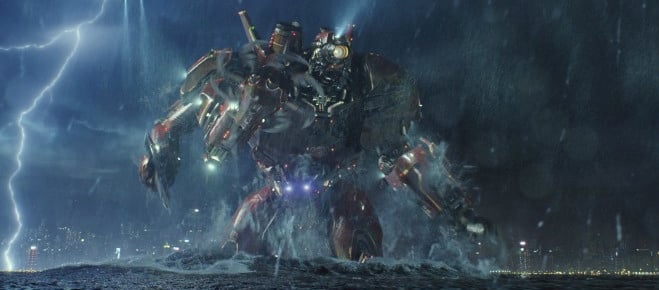Real life mimics summer blockbusters
Tease the day: Natural disasters and spacewalk catastrophes are better suited to the silver screen than real life
Share

Sometimes, the saying goes, truth is stranger than fiction. Other times, my own saying goes, real things that happen to real people during the summer are wilder than most summer blockbusters. Today, if you took a gander at the National Post, you’ll see why in the span of three news briefs that are cases in point.
- Amnesia: An American man is found unconscious in a California motel. When he awakes, he speaks only Swedish and refers to himself as Johan Ek. His identification says he’s from Florida, his name is Michael Boatwright, and he is 61 years old. He doesn’t remember how to exchange money or take public transportation, nor does he remember his ex-wife and kids. Doctors say he might have been in Palm Springs for a tennis tournament.
- Space drama: Luca Parmitano, an Italian astronaut serving a stint on the International Space Station, went through a terrifying ordeal during a spacewalk when an apparent water leak in his spacesuit’s cooling system hampered his attempts to speak or hear. The leak “progressively worsened … drenching the back of his head, then his eyes, nose and, finally, mouth.” Parmitano returned to the space station, relatively unharmed.
- Natural disaster: Floods that ravaged northern India earlier this year likely killed 5,700 people still missing—a marked increase from the government’s earlier estimate of 600 dead. During the flooding, more than 100,000 residents who had been stranded were rescued by paramilitary soldiers.
What’s above the fold this morning?
The Globe and Mail leads with the Canadian physiotherapist who allegedly provided supplements to two top Jamaican sprinters who tested positive for banned substances. The National Post fronts the European Union’s ban on any business dealings with Israeli firms in the West Bank, East Jerusalem or the Golan Heights. The Toronto Star goes above the fold with aboriginal children who were subject to nutritional experiments—including the withholding of food—by government scientists in the 1940s and 1950s. The Ottawa Citizen leads with reporters’ first look at the devastation in Lac-Mégantic, Que. iPolitics fronts an exploration of the so-called “generational change” in Prime Minister Stephen Harper’s new cabinet. CBC.ca leads with the heat wave engulfing Ottawa and Toronto. CTV News leads with the Prime Minister’s Office apparently withholding a key email about the Wright-Duffy affair from RCMP investigators. National Newswatch showcases CTV‘s story on the Wright-Duffy email.
Stories that will be (mostly) missed
| 1. Arctic claim. A decade-long effort to measure Canada’s Arctic claim—and the potential economic development that awaits—has concluded, and the feds will soon file the application to the UN. | 2. Aboriginal evacuees. A lodge in Gimli, Man., that houses displaced residents of flooded aboriginal communities is owed millions of dollars—and might evict its current tenants. |
| 3. Law and order. Political observers suggest the Conservative government’s law-and-order agenda may be running out of steam, as the party’s already passed most of its reforms into law. | 4. Harassment. A Health Canada employee, Krystal Deiter, says the department hasn’t acted on a report that admitted her boss, Wadieh Yacoub, harassed her, saying she should have more babies. |
| 5. Syria. UN officials say 6,000 refugees are fleeing Syria every day, a rate not seen since the Rwandan genocide, and 5,000 people are killed on a daily basis as a result of the ongoing conflict. | 6. North Korea. Panamanian officials stopped a North Korean cargo ship, ostensibly shipping brown sugar from Cuba, after they noticed missile-shaped objects—a potential violation of sanctions. |